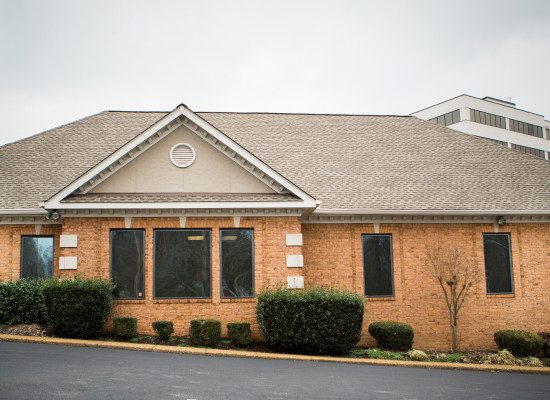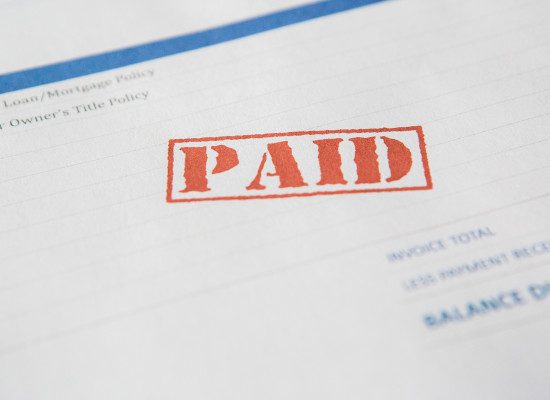— TITLE INSURANCE —
we want you to know the facts.
Buying a house is an exciting time. Learn what it takes to get the keys to your home and why you should purchase an owner’s title insurance policy to protect your property rights.
WHAT is Title Insurance?
A title insurance policy protects real estate owners and lenders against and property loss or damage due to the existence of liens, encumbrances or defects in the title to the property.WHO benefits from Title Insurance?
An Owner's Policy protects the homebuyer from any title defects and the Lender's Policy insures that the financial institution has a valid, enforceable lien on the property.WHERE do you get Title Insurance?
Title Policies are purchased at closing from the title insurance agent and issued by two of the nation’s top underwriters, Fidelity National Title or First American Title.HOW MUCH will you pay for Title Insurance?
Unlike other forms of insurance, there are no annual payments. The original one-time-premium is your only cost and is approved by the insurance commission.WHEN will you receive Title Insurance?
Your Owner’s Policy of Title Insurance will be delivered to you within 30 days of closing and will remain in effect as long as you, or your heirs, retain an interest in the property.WHY do you need Title Insurance?
Over half of all real estate transactions have a problem in the chain of title. Title insurance protects against claims and allows our customers to have peace of mind.WHAT is Title Insurance? Protection.
A title policy protects real estate owners and lenders against property loss or damage due to the existence of liens, encumbrances or defects in the title to the property. Each title policy is subject to specific terms, conditions, and exclusions.
Title insurance differs significantly from other forms of insurance. While the functions of most other forms of insurance is risk assumption through the pooling of risks for losses arising out of unforeseen future events (such as death or accidents), the primary purpose of title insurance is to eliminate risks and prevent losses caused by defects in title arising out of events that have happened in the past. To achieve this goal, title insurers perform an extensive search of the public records to determine whether there are any adverse claims to the subject real estate. Those claims are either eliminated prior to the issuance of a title policy or their existence is accepted from coverage.
WHO benefits from Title Insurance? Homebuyers.
An Owner's Policy is designed to protect you from title defects that existed prior to the issue date of your policy. Title troubles, such as improper estate proceedings or pending legal action, could put your equity at serious risk. In the event a claim is filed, the purchaser of real estate needs protection against financial loss due to a defect in the title. A title insurance policy will not only protect the insured owner, but also that person's heirs for as long as they hold title to the property, and even after they sell by warranty deed.
If you are borrowing money against your property, your lender likely will require that you purchase a Lender's Policy. The lender's policy covers only the amount of its loan, which is usually not the full property value. It only insures that the financial institution has a valid, enforceable lien on the property. In the event of an adverse claim, the lender would ordinarily not be concerned unless its loan became non-performing and the claim threatened the lender's ability to foreclose and recover its principal and interest. This protection remains in effect as long as the mortgage remains unsatisfied.
If the insured suffers a loss as a result of title defect, the insurer will reimburse the insured for that loss and any related legal expenses, up to the face amount of the policy.
WHERE do you get Title Insurance? Metropolitan Escrow, Inc.
Title Policies are purchased at closing from the title insurance agent, and issued by an underwriter. Since your policy is backed by the reserves and solvency of the underwriter, we work with two of the nation’s top underwriters, Fidelity National Title and First American Title.
How much will you pay for Title Insurance? One-time Premium.
Unlike other forms of insurance, there are no annual payments. For a single, one-time premium, buyer or lender can receive the protection of a title insurance policy. Filed rates approved by the insurance commission, can be found on either Fidelity National Title or First American Title websites.
Most lenders will typically require a loan policy to protect the lenders investment. The borrower is customarily required to pay the cost of a Loan Policy, which is based on the amount of the loan.
Purchasing an owner’s policy is optional, but is a small additional expense for the valuable benefit of securing your investment in the property from defects. A homebuyer can purchase an Owner’s Policy at their expense, the cost will depend on the purchase price. However, in some areas the seller will provide an Owner’s Policy by agreement in the contract.
WHEN will you receive Title Insurance? Promptly.
Title insurance is issued after a careful examination of the public records. Once recorded defects are discovered they will be accepted, resolved, or extinguished prior to closing. When the closing is complete, your deed will be recorded in the county Register of Deeds office and will remain of public record. Your original Warranty Deed and Owner’s Policy of Title Insurance will be delivered to you via mail within 30 days of closing.
WHY do you need Title Insurance? Peace of Mind.
Over half of all real estate transactions have a problem somewhere in the chain of title. We find these issues and assist in taking corrective action to enable the transactions to go through and allow our customers to have peace of mind about their new home purchase.
A Title Policy protects against claims from defects. Defects are things such as another person claiming an ownership interest, improperly recorded documents, fraud, forgery, liens, encroachments, easements and other items that are specified in the insurance policy.
Title insurance is issued after a careful examination of the public records. But even the most thorough search cannot absolutely assure that no title faults are present, despite the knowledge and experience of professional title examiners. In addition to matters shown by public records, other title problems may exist that cannot be disclosed in a search. Title insurance eliminates any risks and losses caused by faults in title from an event that occurred before you owned the property.






